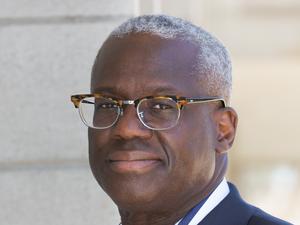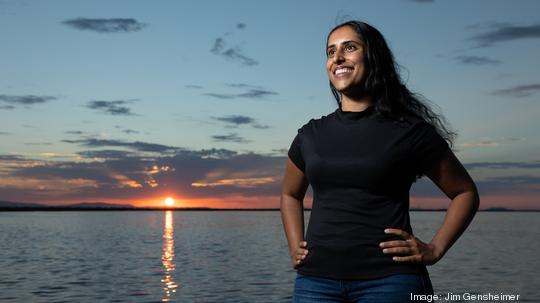
Limitless. That’s how her name is translated from Sanskrit, but Ashima Sharma felt stuck. She was working in the oil and gas industry and kept hitting obstacles as she tried to progress her career. Tech was no better, she found after moving to San Francisco.
Seeking a mentor to help guide her, she ended up on LinkedIn, reaching out to underrepresented leaders and asking how they had achieved their success. After talking to more than 100 people, one theme particularly stood out: They felt they had gotten lucky.
It left Sharma more disheartened than before. Then a lightbulb went off while she was hiking in the Sierra Nevada mountains. What if she created the space and the path she had been looking for, not just for herself but for others?
It started as an Excel spreadsheet where she would match people within her own network for mentoring opportunities. Pretty soon there was more interest than she could handle, so she turned it into Dreami, a platform that facilitates career development opportunities through mentorships and helps companies and nonprofits set up mentorship programs as part of their DEI initiatives.
It’s one of a rising crop of early-stage startups from around the Bay Area that are building products and services that support other businesses and organizations in their diversity, equity and inclusion efforts. In addition to facilitating mentorship, some are using automation and machine learning to create diversity scores and track progress, while others are creating products and marketplaces that promote cultural inclusivity. More are focused on removing biases from the hiring and recruiting process.
The challenges aren’t new, but it has only been recently that so many entrepreneurs are rising to tackle them. Founders are using their experience in underrepresented groups to find innovative solutions, while legacy businesses are acknowledging that fostering a diverse, equitable and inclusive culture is a good investment, and adding it to their budgets.
Turning point
Press releases, promises and platitudes came out during the summer of 2020 as brands jumped into the conversation about the Black Lives Matter movement, nationally ignited after a Minneapolis police officer killed George Floyd.
Many businesses were eager to show their support for the Black community. Some made donations. Others pledged to do better by looking internally and diversifying their workforces. And companies started hiring leaders to oversee their DEI programs, building out new departments and creating brand new employment categories.
Chief of diversity jobs grew by 120% between September 2020 and August 2021, according to LinkedIn, the fastest growing C-suite role during that period. This year, diversity and inclusion manager” is the second fastest growing job title on the site.
It’s one thing to hire for these positions, though. It’s another thing entirely to use them to implement lasting changes.
More than 80% of Fortune 500 companies mention diversity on their websites, blogs and reports, according to researchers at Yale University and the London School of Business, but most of them promote the idea that diversity benefits the company, rather than treating it as a moral imperative, which the authors of the report say may be off-putting to underrepresented job candidates.
Since 2018, mentions of diversity, equity and inclusion have also surged 658% in S&P 500 earnings calls, according to a report on the “state of DEI” from Gartner. Around 90% of Fortune 100 businesses now mention equity as a corporate value.
Diversity
The “D” in DEI is the most visible aspect and often the first area of focus for an organization.
When a company decides it wants to recruit and hire from a more diverse pool of talent, startups like Divercity.IO and Good.Lab are helping them measure, analyze and track data about the demographic makeup of their workforces.
Chuka Ikokwu co-founded Divercity in 2018 after consistently being the only nonwhite person on a team.
Originally based in San Francisco, Ikokwu recently moved to Los Angeles and relocated the company there as well.
He’s from Nigeria and came to the U.S. in 2000 to attend college. He worked as a consultant for Deloitte and eventually moved to San Francisco and spent several years in the gaming and ad technology industries. But the Bay Area wasn’t much better than other areas of the country where he had lived and worked.
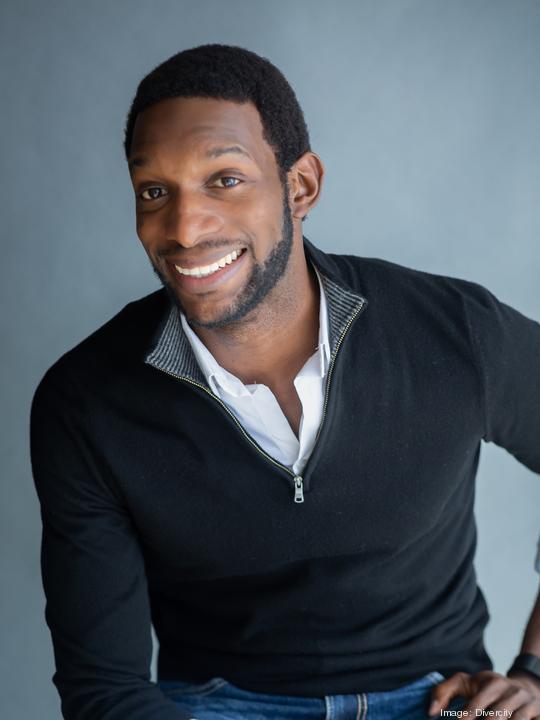
“It would be a bit more of the same. I would almost always be the only person of color or the only Black person, and especially as I progressed up the corporate ladder,” Ikokwu said. “I would become a manager, a senior manager, I would stand out even more.”
Then he read a 2014 McKinsey study that made a strong business case for having diverse workforces and representation, and decided to tackle the issue full-time.
“Our goal is to help companies drive their diversity and inclusion initiatives more easily by helping them measure the progress of the initiatives and connecting them with diverse talent in addition to that,” Ikokwu said. “The real measure is seeing if things change over time.”
Divercity uses machine learning and data science and starts by creating a diversity score for its clients by analyzing as much data as possible including LinkedIn profiles and other self-reported data. It can then compare a company’s score to industry and national averages. This sets a benchmark, but the ultimate goal is to affect long-term progress.
Good.Lab provides similar data analysis services but across the broader ESG spectrum — environment, social and governance policies — which includes DEI.
Originally from Belgium, Andries Verschelden had been working at the consulting firm Armanino and realized that he wanted to help as many companies as possible make substantial progress on ESG goals. So he left to start Good.Lab in 2020.
“If you want to work with 10,000 consulting customers, that means you need at least 1,000 consultants and that just takes a long, long time, whereas with software you can scale much faster,” Verschelden said.
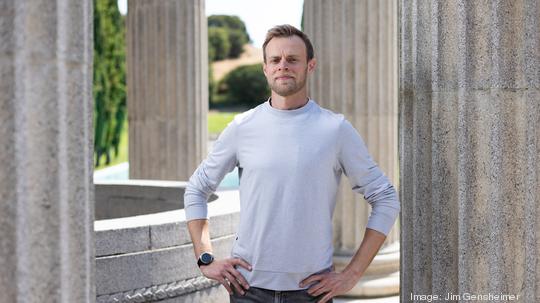
The company helps businesses prioritize and analyze areas that are the most important or relevant to their long-term strategies. Climate, energy use and DEI are among the most requested services.
At some point, though, companies have to move beyond creating benchmarks and issuing press releases.
“Organizations can get stuck in, ‘Let’s measure, let’s report, let’s put something out there that makes us look good,’ ” Verschelden said. “It’s not about looking good. It’s about five or 10 years from now, are you truly a leader on diversity, equity and inclusion? Are you truly a leader when it comes to climate and energy?”
Equity
The “E” in DEI can intersect with other issues but often encompasses compensation and access to opportunities like promotions.
Closing pay gaps is a complex process but creating thoughtful, targeted policies can be effective, according to a 2019 Harvard Business Review column. Many enterprise businesses have committed to closing gender and racial pay gaps, including Salesforce, San Francisco’s largest private employer.
Since 2015, Salesforce has spent more than $22 million to correct pay gaps across gender, race and ethnicity, and the company also includes bonuses, stock options and promotions in its assessments of equity.
Two former Salesforce executives are helping other businesses implement similar practices.
Thanh Nguyen and Nancy Connery both led human resources teams at Salesforce for more than two decades, and in 2021 they founded OpenComp, a San Francisco startup building analytics tools that can tap into HR data to determine whether an organization’s pay structure is equitable and competitive.
“At the end of the day, it isn’t me activating that strategy. It’s the managers, it’s the recruiters out in the field. That’s where compensation strategy comes into life,” Nguyen said. “If I can’t get you to activate it, I didn’t do my job.”

Explicit discrimination has waned due to equal pay laws, but disparities persist. As far back as 1963, the Equal Pay Act established a federal right to equal pay, and California amended its own equal pay law in 2017 to include race and ethnicity.
Pave is another San Francisco startup trying to make compensation policies more equitable.
CEO Matt Schulman founded Pave in 2019 after working in the tech industry for a few years and noticing the lack of transparency around pay and stock options.
“All my friends were bewildered about their stock options, then I talked to the companies and the companies were stressed about their stock option packages. They were trying to communicate it to candidates and employees. Nobody really understood the details and everybody was told something different,” Schulman told the Business Times in June when Pave announced a $100 million Series C round. “It was inefficient and led to a lot of inequities.”
Inclusion
The “I” in DEI relates to fostering a culture of inclusion and belonging. It can span across issues like cultural awareness, gender disparities and accommodating an employee’s health or caretaking needs.
Zoya Khan had been working in tech and consulting when the pandemic hit, and during that sudden shift to working remotely, she found herself thinking more and more about building cultural experiences and connecting with others beyond the corporate world.

By July 2020, she and her co-founder started a greeting card business called Chit-Chaat and launched a line of cards for occasions like Diwali and Black history month. One day their online shop was completely sold out. Zoom had bought their entire inventory.
They quickly realized there was demand for more than just cards. So in early 2022, they launched a new marketplace called Accent where business leaders could go to purchase culturally relevant gifts for their workforces from underrepresented vendors.
It operates as a two-sided marketplace and partners with vendors to sell their goods to other businesses. Accent lets customers search for products by celebration or holiday, and also supports adding logos to orders. It charges customers a transaction fee; for vendors the service is free to use.
“We work with a vendor or a creator from the community we’re celebrating,” Khan said. “If you’re selling Diwali products, we really want you or somebody on your team to be a person that celebrates Diwali. That keeps up in the mode of appreciation versus appropriation,” Khan said.
The company has also been landing recurring monthly contracts with companies like Google and Duolingo, Khan said, and later this year will be launching a dashboard where customers can track their annual spending on gifts.Eventually, they’ll be able tointegrate HR data and set up gifting schedules.
In the future, Khan wants to build out fulfillment centers and an inventory management system to make purchasing products even more seamless. The biggest challenge, though, will be implementing identity-related programs like this at scale. Employee surveys and resource groups will play an important part in connecting people with culturally relevant incentives and gifts.
Mentorship programs, like Dreami’s, are another way of creating an inclusive culture.
Founded in 2021, Dreami works with small and medium businesses, as well as non-profits and other educational institutions to match people with similar life experiences and career goals.
“Our main mission is to make mentorship and career progression equitable” even at small and medium-sized organizations that don’t have the deep pockets of big tech companies like Google and Amazon, Sharma said.
The DEI startup ecosystem
DEI-related products and services frequently intersect and fall into a few main categories, based on an analysis by the Business Times. We’ve organized Bay Area startups into the following broad categories based on their focus: Hiring and recruiting; compensation; employee engagement and training; and culture, inclusion and belonging.
HIRING AND RECRUITMENT

ByteBoard
- Founders: Sargun Kaur, Nikke Hardson-Hurley
- Founded: 2019
- Location: San Francisco
- Funding: $5 million
- Mission: Eliminating bias in hiring for technical roles like software engineering

Crosschq
- Founders: Mike Fitzsimmons, Pete Goettner
- Founded: 2017
- Location: Danville
- Funding: $35.75 million
- Mission: Helping businesses make better hiring decisions and retain workers, and removing barriers for job candidates

Divercity.IO
- Founder: Chuka Ikokwu
- Founded: 2018
- Location: Los Angeles (previously S.F.)
- Funding: $500,000
- Mission: Helping businesses measure, track and hire diverse teams
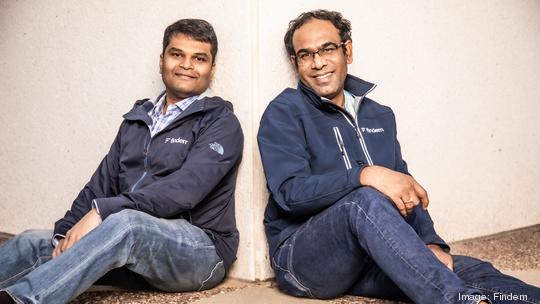
Findem
- Founders: Hari Kolam, Raghu Venkat
- Founded: 2019
- Location: Redwood City
- Funding: $37.3 million
- Mission: Making the recruiting and hiring process faster while also eliminating bias to encourage diversity
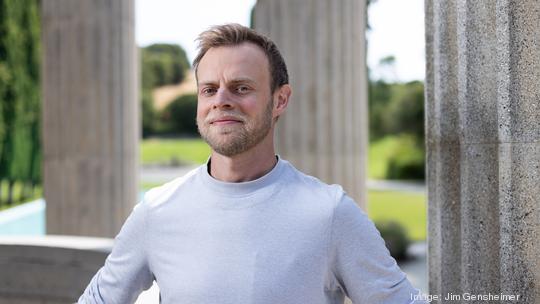
Good.Lab
- Founder: Andries Verschelden, Liam Bossi
- Founded: 2020
- Location: San Mateo
- Funding: Undisclosed
- Mission: Helping companies make sustainable, long term progress on ESG and DEI goals
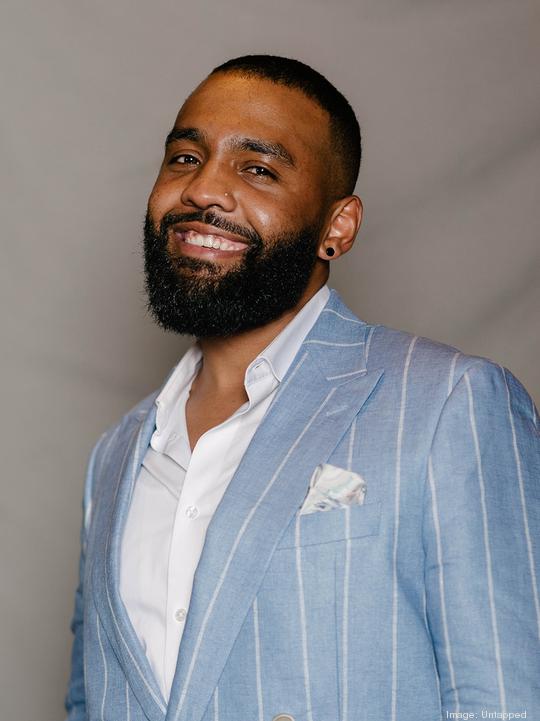
Untapped
- Founder: Adam Gefkovicz, Tariq Meyers
- Founded: 2017
- Location: San Francisco
- Funding: $82.7 million
- Mission: Helping companies recruit diverse teams while eliminating bias in the hiring process
COMPENSATION
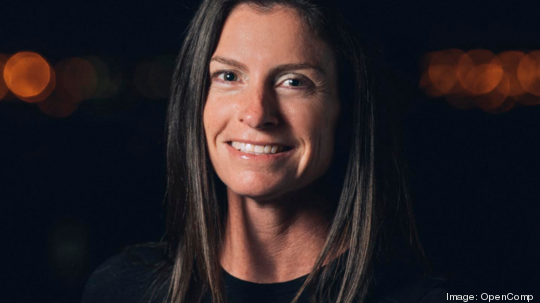
OpenComp
- Founder: Thanh Nguyen, Nancy Connery
- Founded: 2021
- Location: San Francisco
- Funding: $24.6 million
- Mission: Using data to help business leaders make compensation structures more transparent, equitable and fair

Pave
- Founder: Matt Schulman
- Founded: 2019
- Location: San Francisco
- Funding: $163 million
- Mission: Making compensation structures more transparent and fair.

Pequity
- Founders: Kaitlyn Knopp, Warren Lebovics
- Founded: 2019
- Location: San Francisco
- Funding: $19 million
- Mission: Helping HR teams automate and analyze compensation data so they can make competitive, equitable offers quickly
EMPLOYEE ENGAGEMENT AND TRAINING
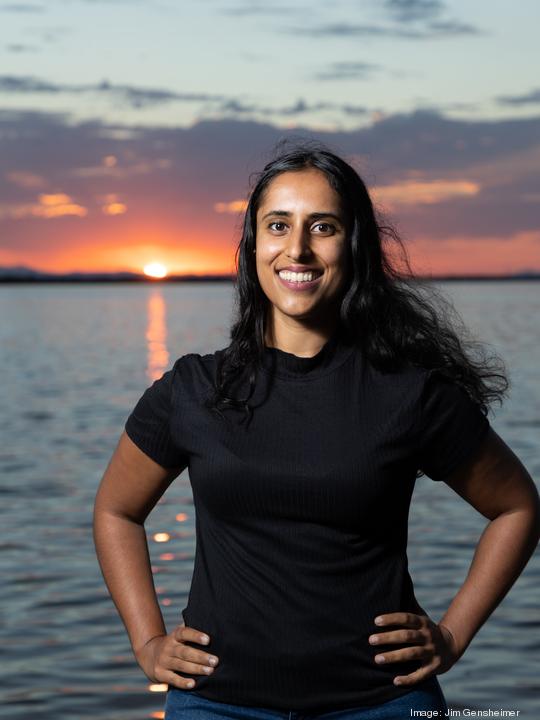
Dreami
- Founder: Ashima Sharma
- Founded: 2021
- Location: San Francisco
- Funding: $196,000
- Mission: Connecting underrepresented people to mentorship opportunities at businesses, non-profits and educational institutions
Us in Technology
- Founder: Kendrick Trotter
- Founded: 2019
- Location: Oakland
- Funding: Undisclosed
- Mission: Creating opportunities for underrepresented workers and providing training for skills that are relevant for jobs at tech companies.
CULTURE, INCLUSION AND BELONGING

Accent
- Founders: Zoya Khan, Afra Nehal
- Founded: 2022
- Location: San Francisco
- Funding: Bootstrapped
- Mission: Celebrating diversity at workplaces through an automated corporate gifting platform
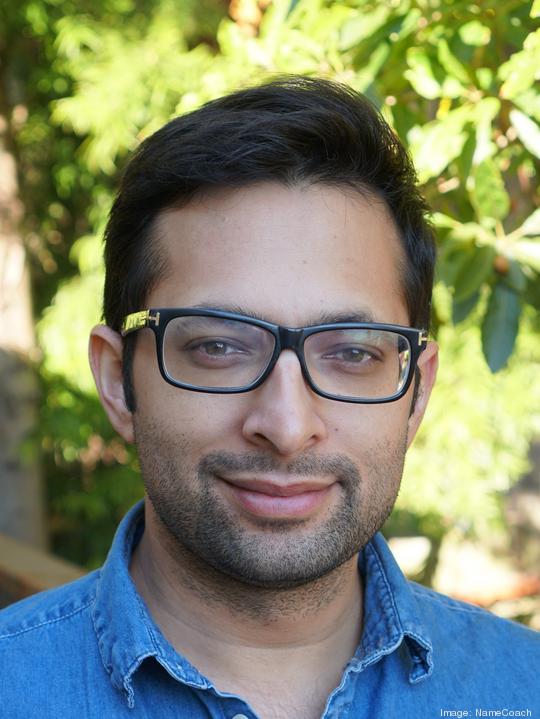
NameCoach
- Founder: Praveen Shanbhag
- Founded: 2014
- Location: Palo Alto
- Funding: $7 million
- Mission: Creating inclusive work and campus cultures by integrating audio tools to encourage accurate pronunciations of names



